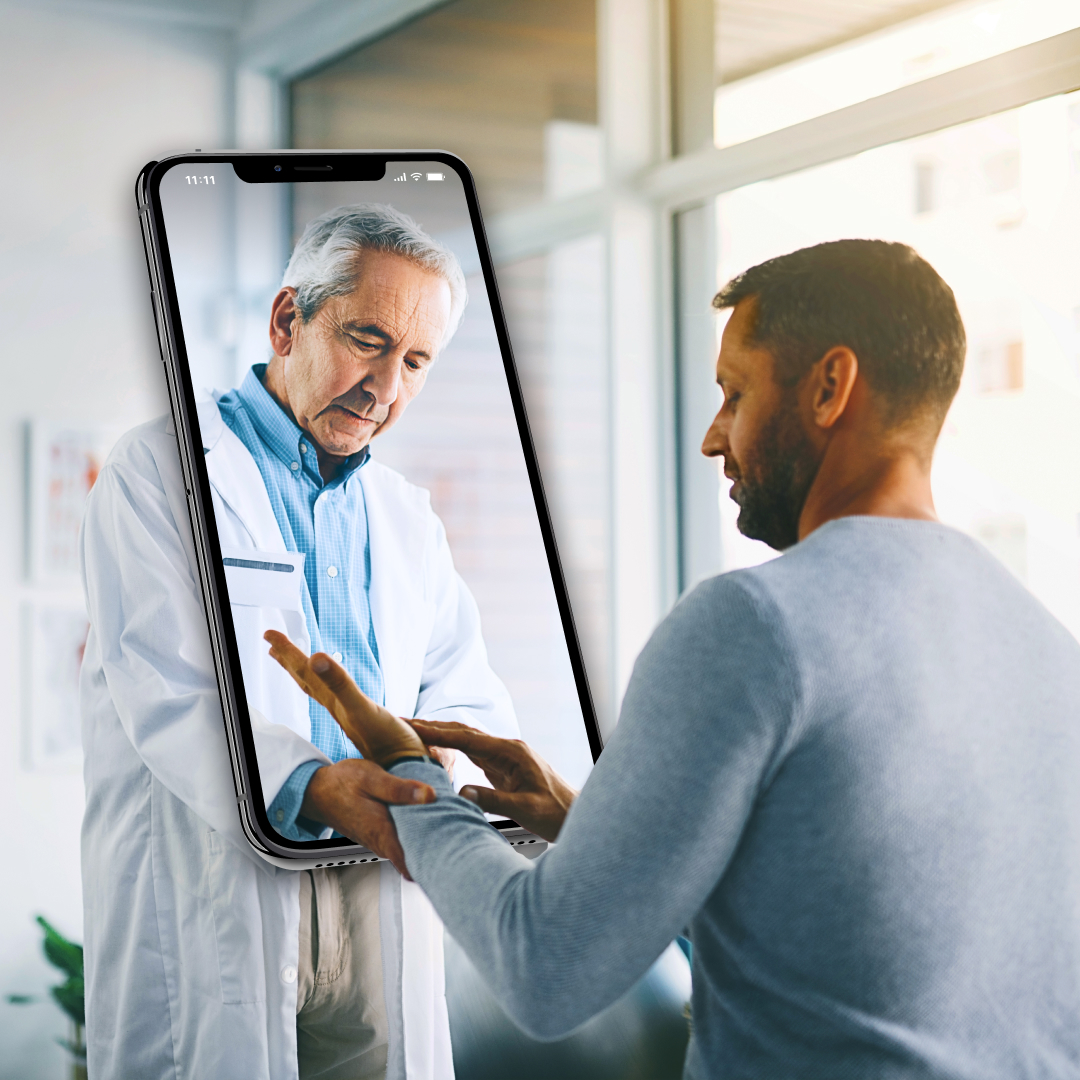The doctor’s waiting room was crowded and hot. Emily sat there with one child on her lap, and another bouncing between the table of outdated magazines and kicking Emily’s chair. Emily had waited two weeks for the appointment. And then an hour in traffic, fifteen minutes trying to find parking, before waiting another thirty minutes in this waiting room. Not to mention the day’s pay she was losing.
When the doctor finally saw Emily’s toddler, they were in his exam room for ten minutes. A quick evaluation of the child’s throat and he diagnosed her issue and sent them home with a prescription.
As Emily and her children walked out of the office, she imagined just how many times this happens to people who need a doctor — weeks of waiting and hours of inconvenience for a ten minute consultation.
Last week I saw a doctor while between meetings at work. I had something on my forearm that looked like poison ivy. I sent a dermatologist a photo of my skin and she sent me back some advice along with a prescription. I picked it up on my way home from work that day. I didn’t miss any work and I had my worries addressed within about an hour.
So many of our daily medical visits can be handled effectively using telemedicine. According to a recent Kaiser Permanente study, by 2020 more of us will be seeing our doctors virtually than in person. And the American Hospital Association reports that over 75% of U.S. hospitals are already connecting with patients through telemedicine services. And this is what Medici, a small Austin, Texas based startup, is building a business on top of — and in the process we are trying to change the way healthcare is delivered. We want everyone to have the experience I had. (Medici is the company I now work for.)
Taking The Stress Out Of Medicine
Medici’s tagline is “we aim to take the stress out of medicine.” You would be forgiven for not feeling more than a little stress over the seemingly hundreds of companies claiming today to change our broken healthcare system. Urgent care clinics are everywhere, and there is no shortage of doctor “call center” apps. As they both address our desire for convenience, so too do they erode the quality of our care because of their inherent lack of healthcare continuity — not to mention that they contribute to increasing stress and morale erosion for our doctors, nurses, and other healthcare staff.
What all of the current “solutions” on the market today fail to acknowledge is that healthcare is a relationship. How does Medici aim to take the stress out of medicine? By acknowledging that the doctor-patient relationship is in need of some serious couples counseling, and then giving both the doctor and patient the tools they each require to nurture their relationship.
Here’s how the Medici app removed the stress from my healthcare: Instead of waiting weeks to fit into my dermatologist’s office hours, I connected with her on my Medici app. I’ve told my friend Emily about it too — so she can take care of her children’s health without missing work every time they get sick. Now she simply sends a few text messages to her pediatrician and he is able to diagnose their issues and send a prescription directly to her pharmacy. Sometimes she turns on her phone’s camera and he takes a look at them, like when her daughter burned her fingers on the stove and her pediatrician was able to reassure her that an ER visit was unnecessary.
And I can do this with several of our doctors, all on the same app. When our rescue dog Timber was limping, we connected with our veterinarian on Medici and used our phone’s video camera to show him how our dog was walking — and saved an expensive trip to the vet. My teenage niece who suffers from anxiety now uses Medici to have quick sessions with her therapist. We even have my husband’s nutritionist on Medici who follows up with him about his diet and cholesterol levels.
Our family has certainly had a considerable amount of stress removed from our healthcare management. It is why I decided to join the company–it was the first time I found myself optimistic about the possibility that maybe this time would be different, maybe this time healthcare would actually be changed for the better.
And the first group of people we may be able to help in a significant way are our U.S. veterans.
Operation 11/11 – Free Healthcare for U.S. Veterans
Doctors on the Medici app decide how much they will charge their patients for a consultation, and while rates vary across specialties they are usually around the same price as an in-office co-pay.
But on November 11, 2019 — Veterans Day — Medici is paying for all U.S. veterans to have as many consultations with as many healthcare providers as they like.
Our veterans face incredible challenges in getting the care they need after serving their country. This Veterans Day, I am proud to be a part of an organization that understands the day isn’t about buying trucks or furniture on sale, but about recognizing the sacrifices our veterans and their families have made. And this November 11, no U.S. veteran will have to pay for their healthcare on the Medici app — or have to leave their home or their job to get the care they need.
To each and every one of our veterans: I hope you find the opportunity this Veterans Day to experience some of what I have experienced with the Medici app — and to do so without any cost to you at all. You deserve that, and more.
To everyone else, you deserve better than urgent care and inconvenience.
Editor’s note: co-written by Anne Hunt and Anthony Palamara


